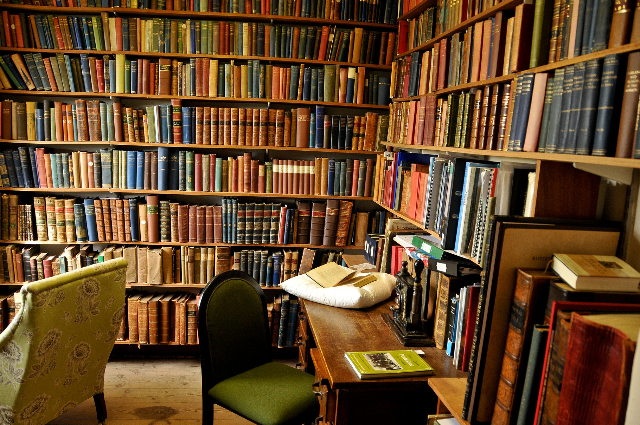
Introduction:
In India, historiography has been the lesser area amongst the intellectual class. Before the advent of Muslim rulers in the country, one finds very few books on history. Rajtarangini by Kalhana, a historical chronicle of early India, and Harshcharita written by Banabhatta, Artha-shastra written by Chanakya, a classic treatise on polity, are but a few leading examples in this context. Despite the fact that so many of our rulers in different States within the country did wonderful works in the area of good governance, safeguarding their territories showing exemplary bravery and leadership and the philanthropic approach towards the public at large, we don't find their first-hand account of the happenings. Neither the rulers themselves nor their courtiers found it suitable to chronicle the record straight for the benefit of future generations. In the early phase of our civilization, the words of wisdom used to be carried out further by memorizing the facts and passing them on to future learners. This practice is widely known as "Smriti". Then came the writing phase when our ancestors began writing on mud cakes, palm leaves or so which were collected and preserved for posterity. However, in these writings also, one scarcely finds mention of historical narrative. Thus, it can be summarised that there was almost a total lack of historical writings in the ancient age.
In a real sense, the history was recreated on paper with the advent of Muslim rule in India. Every such ruler had a court historian who wrote on the events and happenings of his times in chronological order. Basically, this was a narration of political events which may be called political history. From the earliest Muslim ruler to the last of Mughals, we find a treatise on political history written by the court historians. In these accounts of the prevailing times, small tid-bits of socio-economic and cultural inputs were also inserted as an appendage to the political exploits of the current ruler in an effort to bring forth his benevolent persona.
It was during the British rule in India, the real and concrete work on historiography began to take shape. Many officers of the Indian Civil Service (ICS) who were posted in districts as Collector and Divisional Commissioners, took the initiative to write an account of the past as well as of the present. For this, they scanned the available old texts, lent their ears to old stories from the people, and visited the sites personally where they prepared personal memos and drew sketches on paper. Armed with this material, they started writing about India's past. Their writings in the form of a compilation of the past history along with the current description of social, economic, and cultural conditions prevailing at that particular time in a district appeared into the form of District Gazetteer which today is a rich source of all kinds of historical facts. Some of the officers and scholars expanded the scope and wrote historical accounts of India from ancient times to the nineteenth century. A few writers focussed their attention on particular rulers like Ashok, Akbar, Aurangzeb, and others. A few writers worth mentioning here are James Mill, Grant, and Duff, James Erskine, Vincent Smith, and Rushbrooke Williams, etc.

In the 19th and 20th centuries, a string of Indian historians sprang up on the scene who wrote on different phases of Indian history with acclaim. Sir Jadunath Sircar, R.C.Majumdar, R.C. Dutt, H.C.Roychaudhary, Kalikinkar Dutt, Radhakamal Mukherjee, Dr. Iswari Prasad, Beni Prasad, and K.P.
Jayaswal belonged to the first line of illustrious historians who tried to write history from the Indian perspective. This trend of new history-writing deviated from the British historians who wrote the history of Indian people from the viewpoint of a conqueror depicting India as a conquered nation. That reflected in their approach of highlighting the racial supremacy of the British people who in their eyes were the harbinger of knowledge and wisdom for the countries under their dominance. They enjoyed the feeling that being superior in all respects, they were opening the new vistas for making progress that had eluded the vanquished countries for centuries. They even described our own glowing history in subdued language. Moreover, they introduced the western concept of history writing in the Indian context. That resulted in presenting a picture of India and the Indians as a politically, socially, and culturally backward State which was then a British colony. Further, their history writing was based on the published material available at that time and interpreted it according to their whims and fancies. However, this trend became an addiction for the later historians who strictly depended on the available published material. Since very few Indian historians took to writing history, there was a dearth of material as such. The relevant information was largely available in India Office Library in London and in the Government Archives of Great Britain and also in some of the foreign libraries. But it appears that this material somehow could not be fully used by our historians. In the post-independence period, historians like Dr. Sarvepalli Gopal extensively used this material in writing the history of British India.
The drawbacks of history writing in the pre-independence phase Some significant shortcomings may be enumerated as following:
- It was mainly political history and the focus was on magnifying the policies and performances of the ruling class.
- There was only a casual mention of social and cultural aspects concerned with the people under subjugation. This led to the gradual inferiority complex in the Indians about their own rich and grand socio-cultural legacy.
- Guided by the spirit of vanquished people, the indigenous historians, by and large, go with the line of British historians.
- Indian historians did not try to explore the local material available in the libraries of many rulers of Indian states, local zamindars, etc. to extract further information. This resulted in their dependency on the same source material available to the British historians.
- No serious attempt was taken by the Indian historians to see and interpret things in the light of local conditions and aspirations of the people.
Changes in approach to historiography in Europe after the Second World War:
In the post-world war scenario, historiography underwent a sea change as far as its focus was concerned. For the first time, historical writing encompassed the socio-economic, cultural, and other aspects besides the vivid description of political events. France, in particular, took the lead in this regard and this trend became common in the U.S. and other West European countries. In the twentieth century till date, various kinds of histories are being written everywhere on this line. This concept is based on the assumption that the history of a nation is not only a roll-call register of the ruling princes and the prime ministers in a democracy, but it is a mirror of the steady growth of mankind in all aspects related to life.
The Indian Scenario:
In India, strident voices are ringing around regarding the serious lapses of written history. They argue that first, the British historians did not do justice with Indian people as a whole as they wrote the history of India from a victor's perspective. Later on, Indian historians also dwelt upon the same source material and did not try to make corrections in the history dished out by the British historians. As a consequence, many great events of national importance and a number of great personalities have been overlooked by indigenous historians. These factual lapses encompass all the segments of Indian history starting from the Vedic age and beyond. Many of these events are confined to small towns and rural areas, especially connected to the freedom movement which has not been mentioned in the annals of history written by our own historians. In a few cases, the British authorities hanged the local insurgents from a tree, yet they don't find any place in the history books. One other major concern is that of late, the due emphasis on the history of India has not been given to the period before the Muslim invasion. Rather undue focus is being provided to India post-Muslim and post-British rule which represent our slave status. India was not an independent country in this whole period. Besides that, there are so many unrecorded and unrecognised facts which must be included in the history books to put the records straight.

New Developments:
- Oral history - However, some new developments have taken place in the field of Indian historiography. Taking a cue from the western trend, the new lot of Indian historians is constantly and diligently trying to extract facts from secondary sources also. This trend is vividly reflected in two specific fields, namely, in regard to history related to Partition and World War I in which Indian soldiers played a significant role. In both cases, the historians have attempted to extract the remaining threads of history by orally talking to the survivors or their families. The memories etched out in their minds of that period are a real testimony to the events and happenings that took place at that time of crisis. Of course, such information has to be cross-checked, evaluated, and cross-examined with the available documented information. But the whole exercise has been rewarding for the readers. The books coming out on the basis of such oral history have shed new light on the hidden facts behind the above-mentioned events of great national significance.
- In this regard, more social, economic, and cultural histories are coming out of the quills of Indian historians who are breaking free from the stereotype political history patterns.
Conclusion:
Indian history writing has made rapid strides into the domain of writing people's history by not remaining confined to only political history. This is, indeed, a welcome departure from the past. But at the same time, a lot more is needed to be done in regard to exploration of the hidden facts and to set the record straight on the bedrock of foolproof information and statistics. This is a tremendous task worth performing in the national interest. The coming generations must know the exact truth behind each and every incident related to India's history. Half-baked or doubtful information about the past will surely deter them from the goal of serving the nation with full devotion.
